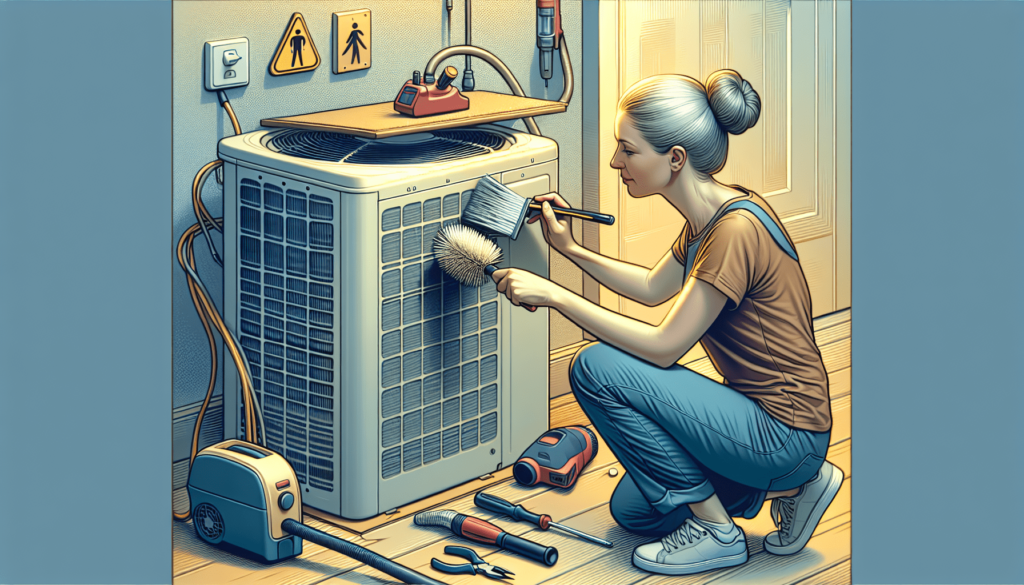In order to properly maintain your air conditioning unit without voiding your warranty, it is essential to understand the do’s and don’ts of DIY maintenance. By following manufacturer guidelines, using proper tools and techniques, and avoiding certain common mistakes, you can extend the life of your A/C unit and ensure that any issues are covered under warranty. This article will outline key tips for maintaining your A/C unit effectively and safely, while protecting your warranty coverage.
The Do’s and Don’ts of DIY A/C Maintenance to Avoid Voiding Your Warranty
Have you ever wondered if you can perform maintenance on your air conditioning unit yourself without voiding the warranty? Well, the answer is yes, you can! However, there are certain do’s and don’ts that you need to keep in mind to ensure that you are not putting your warranty at risk. In this article, we will dive into the ins and outs of DIY A/C maintenance and provide you with all the information you need to keep your unit running smoothly.
Understanding Your A/C Warranty
Before we jump into the do’s and don’ts of DIY A/C maintenance, let’s first understand what your warranty covers. Your A/C warranty is a contract between you and the manufacturer that outlines the terms and conditions under which the manufacturer will repair or replace your unit if it malfunctions within a certain period. Typically, warranties cover defects in materials and workmanship, but they may also include specific maintenance requirements.
Tips on Reading Your Warranty
Reading the fine print of your warranty is crucial to understanding what is covered and what is not. Look for any clauses related to maintenance and service requirements. Some warranties may require you to perform regular maintenance to keep the warranty valid, while others may specify certain tasks that must be done by a professional.
The Do’s of DIY A/C Maintenance
Now that you have a good understanding of your warranty, let’s delve into the do’s of DIY A/C maintenance. These are tasks that you can safely perform on your own without risking voiding the warranty.
Regular Filter Replacement
One of the easiest and most important tasks you can do to maintain your A/C unit is to replace the air filter regularly. A dirty or clogged filter can restrict airflow, reduce efficiency, and even cause your unit to freeze up. Check your filter every 30 days and replace it if it looks dirty or clogged.
Cleaning Condenser Coils
The condenser coils are responsible for releasing heat from your A/C unit to the outside. Over time, dirt, debris, and other contaminants can build upon the coils, reducing their efficiency. You can safely clean the condenser coils with a vacuum or gentle spray of water. Make sure to turn off the power to the unit before cleaning.
Inspecting and Cleaning Evaporator Coils
The evaporator coils are located inside your home and are responsible for cooling the air. Inspect the coils for dirt and debris, and gently clean them using a soft brush or vacuum. Avoid using harsh chemicals or abrasive materials that can damage the coils.
Checking Refrigerant Levels
Low refrigerant levels can cause your A/C unit to work harder and less efficiently. You can check the refrigerant levels by looking at the sight glass on your unit. If you notice bubbles or frost, it may indicate low refrigerant levels. Contact a professional to refill the refrigerant if needed.
Testing Thermostat Functionality
Ensure that your thermostat is working correctly by testing its functionality. Check for accurate temperature readings and proper calibration. Replace the batteries as needed and consider upgrading to a programmable thermostat for increased energy efficiency.

The Don’ts of DIY A/C Maintenance
While there are many tasks you can safely perform on your own, there are also certain tasks that you should avoid to prevent voiding your warranty. Here are the don’ts of DIY A/C maintenance that you should keep in mind.
Opening Sealed Components
Many A/C units have sealed components that should not be opened by inexperienced individuals. Opening these components can expose sensitive parts to dust, dirt, and other contaminants, leading to potential damage. Leave any repairs or maintenance involving sealed components to a professional.
Tampering with Electrical Components
A/C units are powered by electricity and contain various electrical components that should only be handled by trained technicians. Tampering with electrical components can be dangerous and may void your warranty. If you suspect an issue with the electrical system, contact a professional immediately.
Overcharging or Undercharging Refrigerant
Refrigerant is a crucial component of your A/C unit, and overcharging or undercharging can result in serious damage. Refrigerant levels should be adjusted by a professional using specialized equipment to ensure proper balance. Attempting to add or remove refrigerant yourself can lead to costly repairs and void your warranty.
Ignoring Strange Noises or Smells
If you hear strange noises or smell unusual odors coming from your A/C unit, it is essential to address them promptly. Ignoring these signs can lead to further damage and potential warranty issues. Contact a professional to diagnose the problem and make any necessary repairs.
Skipping Regular Professional Maintenance
While there are many tasks you can do yourself, regular professional maintenance is still crucial to the longevity of your A/C unit. Professional technicians have the knowledge and experience to identify and address potential issues before they escalate. Skipping regular maintenance can lead to voiding your warranty and costly repairs down the line.
Conclusion
In conclusion, DIY A/C maintenance can be a great way to keep your unit running smoothly while saving money on service calls. By following the do’s and don’ts outlined in this article, you can ensure that you are not putting your warranty at risk. Remember to read your warranty carefully, perform regular maintenance tasks, and contact a professional for any issues that are outside of your expertise. With proper care and attention, your A/C unit will provide you with cool comfort for years to come.


